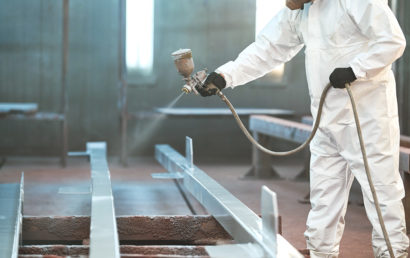Is Hard Coating Technology Effective?
Over the past several decades, in any number of industries, metal coating technologies have been not only developed but utilized to a great extent. Thermal sprays, thin films, and other hard coatings have proven beneficial by improving the durability and resistance of tools and parts. Maintenance costs are reduced, replacement costs decreased, and malfunctions minimized. Many industries have seen an increase in efficiency is a direct result of thermals protective coatings.
Here, we will take a closer look at hard coating technologies and the reasons for their success.
Thin Films and Thermal Sprays
In biomedical industries, aerospace, and automotive industries, both thin films and thermal sprays are frequently used. They improve part and machinery durability as well as improving wear and hardness. Additionally, increasing a machine part’s life, these coatings prevent corrosion. Hard coating technologies are also often used in pans, pots, and other household items for their nonstick properties and durability.
No matter the industry, if extreme wear is a reoccurring problem when it comes to machinery, components, or products, hard coatings and the durability and strength increased through the use of them will be invaluable and of great benefit to any company’s bottom line.
When Were Hard Coatings First Used?
The United States Space Research Program’s early days introduced the world to hard coatings. Eventually, drastic improvement was realized when parts being exposed to harsh temperatures and environments saw extended wear life thanks to a dry film lubricant. Soon, defense and aerospace industries were using variations on the original dry film lubricant. Thanks to these early discoveries, the evolution of hard coating technology, improved application processes, and research being done on new materials, multiple industries throughout the world are benefiting from hard coating and its “super powers”.
Most Recognized Hard Coatings
As referred to earlier, thermal spray and thin coatings are the two most recognized and available hard coatings used throughout various industries today. Thermal sprays typically provide a coating that is thicker than thin films and offer longer tool life, wear resistance, corrosion resistance, and friction reduction. Thin films are (not surprisingly) thinner and are used for their nonstick, slip, and release properties as well as friction reduction, hardening, and superior wear resistance.
Hard Coating Technology and Its Success
Excessive research has been and continues to be done when it comes to hard coating technologies. Trials and studies are constantly being held. As an example of some of the research being done and the information being obtained through this research, it has been discovered that the packaging industry in particular will be able to benefit from these technologies in the following ways:
- Operations – improved sanitary conditions
- Functionality – improvement related to hardness, wear, release, and friction
- Costs – improved labor, maintenance, and production costs
- Life expectancy – improved/increased machine component and tool life when exposed to stress, fatigue, corrosion, etc.
Clearly, the technology surrounding thermal spray and hard coatings has evolved and continues to do so. We may well have only scratched the surface when it comes to all of the uses for this incredible process.
If your company or industry is experiencing decreased efficiency, excessive downtime, high maintenance costs, and frequent part replacement, it may well be time to look into thermal sprayed protective hard coatings. The professionals at A & A Coatings can familiarize you with the cause of these issues and the solution. Contact us today and start improving your bottom line by protecting your parts, components, machinery, and more.



